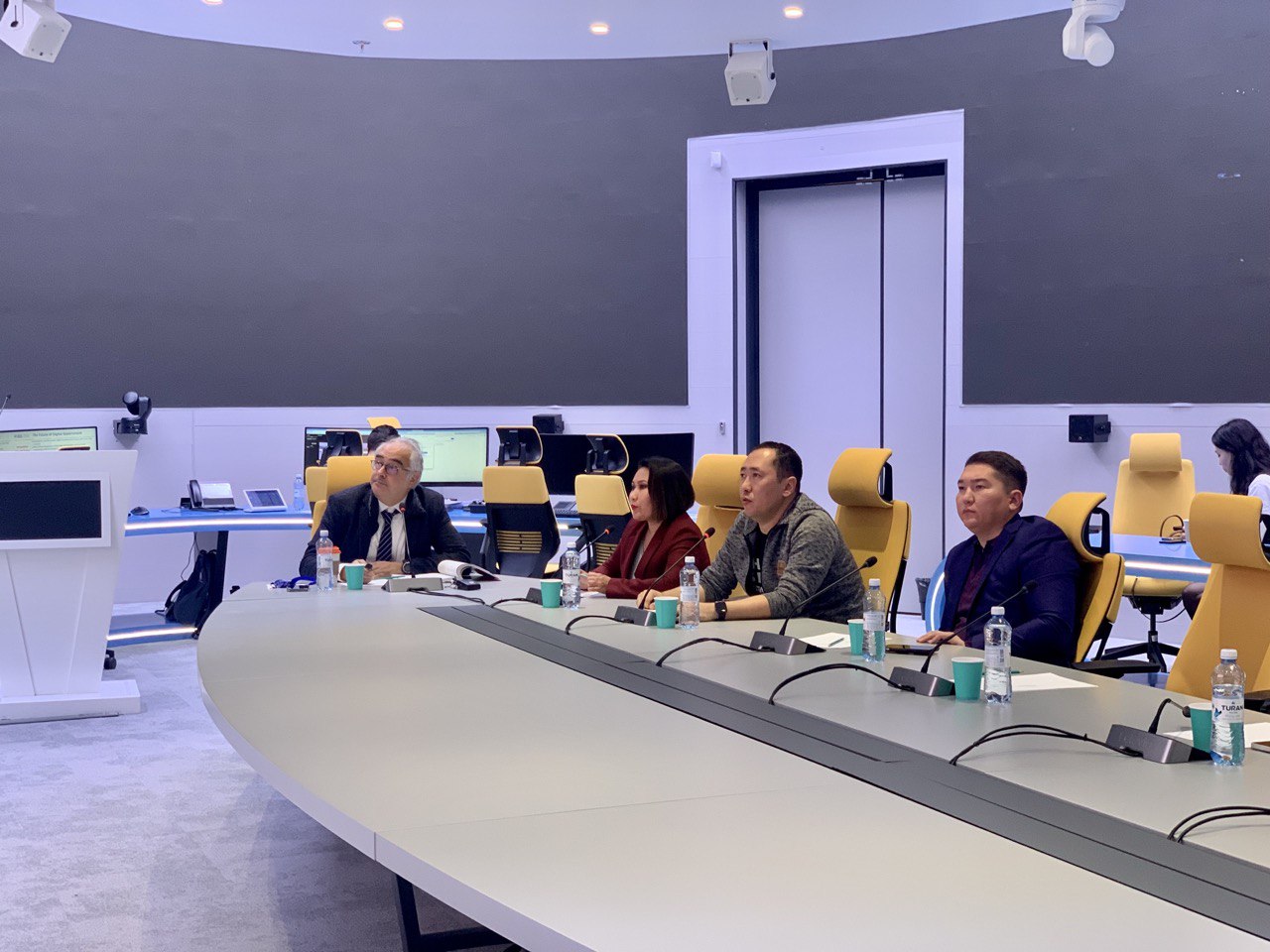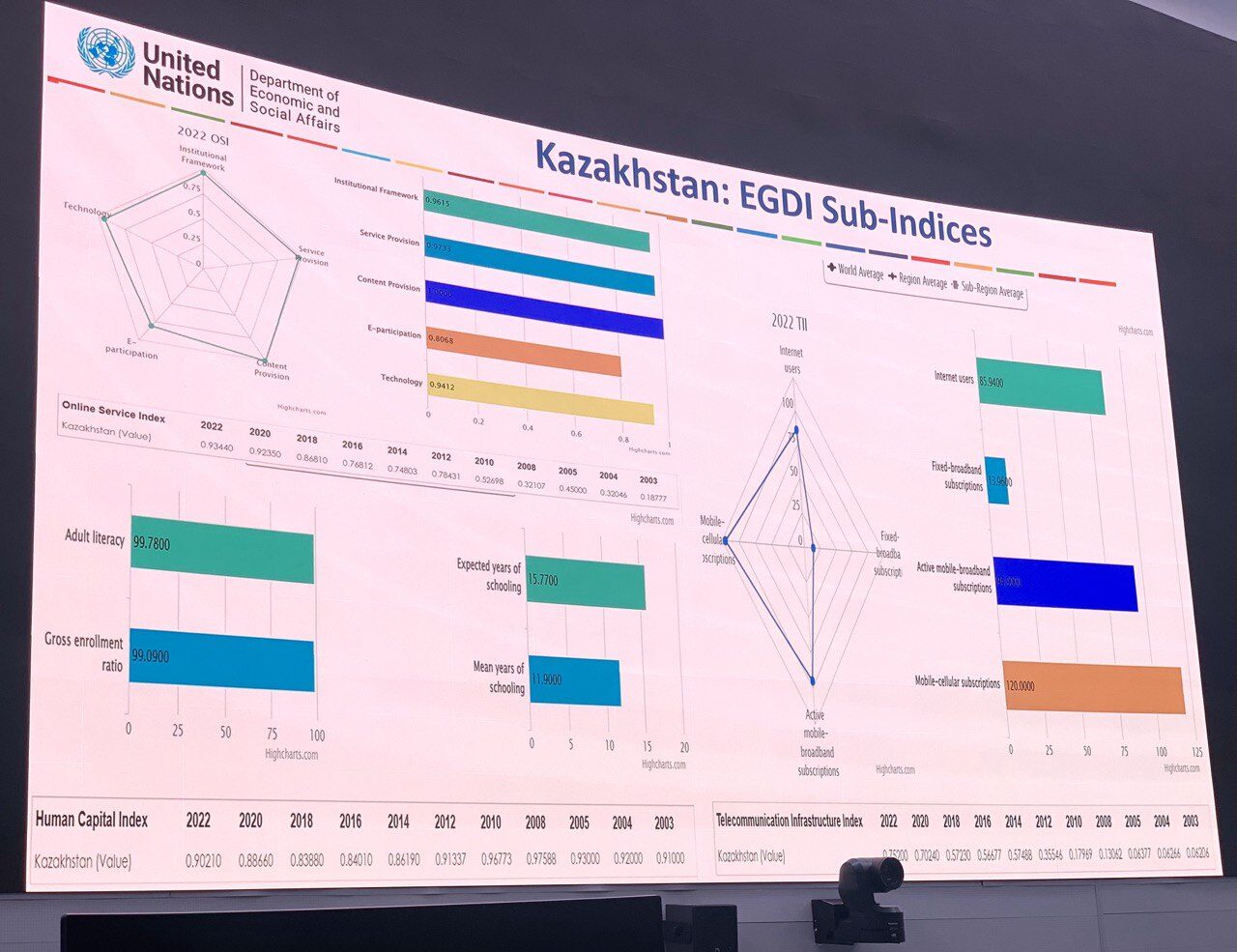ASTANA – Kazakhstan ranked first in the Central Asian and South Caucasus region and 28th globally in the United Nations (UN) Global E-Government Development Index (EGDI) and its sub-indices, said Vincenzo Aquaro, UN Chief of Digital Government, during the briefing in Astana on Nov. 2.

Vincenzo Aquaro conducted a briefing to share details on Kazakhstan’s ranking in EGDI and provide recommendations. Photo credit: astanatimes.com
Aquaro said that the survey highlights that Kazakhstan continues to lead the ranking among landlocked developing countries with room for improvement regarding fixed broadband.
The EGDI assesses the development of e-governance among member states and scores countries on factors such as the online service index (OSI), human capital index (HCI) and telecommunication infrastructure index (TII).
The EGDI methodology classifies countries into four clusters based on 519 indicators characterizing the general development of each member state. Kazakhstan is at the top of the second cluster.
In the index report, according to Aquaro, Kazakhstan is “performing better than almost half of the countries in Cluster I that should have more opportunity to do that.”
“I’m talking about Canada, Italy, Cyprus, Belgium, Russia, and China,” he added.
The index, he noted, underscores the need for the government to do more to ensure people can have broad access to fixed broadband subscriptions.
“When you look at the telecommunication infrastructures, the part that really needs more improvement is the broadband. This is why when you do the EGDI, you are not at the very highest ranking. You could be in the top 15 if that number were bigger. It means that it needs more investment in fixed broadband,” he said. “But it is also true that for your country, it is a much bigger challenge because you have a big rural area, big land.”

Sub-indeces show the need for government to provide broad access to the fixed broadband subscription in order to improve the position in the EGDI. Photo credit: astanatimes.com
Aquaro identified innovation and digital transformation, cutting-edge technologies, an inclusive approach and open government data as factors that help countries perform well in the ranking. He also highlighted areas where the government should continue its efforts.
“Kazakhstan is very advanced on fintech but should also extend to the other sectors because this is a win-win approach that allows you to test without taking risks,” said Aquaro.
Regarding the open government data, Aquaro said that it is necessary to increase public understanding of how to access and use open government data and strengthen societal capacity to use open government data.
Aquaro also encouraged the government to adopt a more inclusive approach.
“Kazakhstan should welcome global, regional and north-south, south-south and triangular cooperation through knowledge exchange, strategic partnerships, and collaborative capacity-building. This cooperation can accelerate cross-border initiatives, human development, and business development,” said Aquaro.
Commenting on the risks associated with digital security, Aquaro said that the index considers whether a country has a data protection law or whether there are measurement issues for litigating cyber security and cyber-attacks.
“What is important is the resilience of the system. (…) You will never have a system that is 100 percent unbreakable. The trend is to have systems that are very fast in reacting,” he said.
Decentralization of data storage also provides more security, he added.
